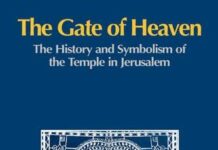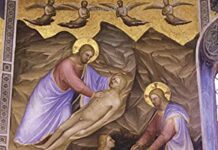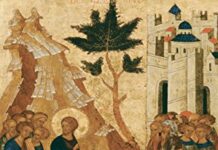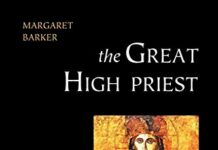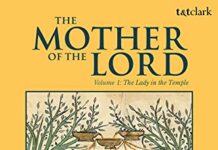
Ebook Info
- Published: 1992
- Number of pages: 272 pages
- Format: PDF
- File Size: 5.75 MB
- Authors: Margaret Barker
Description
What did “Son of God,” “Messiah,” and “Lord,” mean to the first Christians when they used these words to describe their beliefs about Jesus? In this book Margaret Barker explores the possibility that, in the expectations and traditions of first-century Palestine, these titles belonged together, and that the first Christians fit Jesus’ identity into an existing pattern of belief. She claims that pre-Christian Judaism was not monotheistic and that the roots of Christian Trinitarian theology lie in a pre-Christian Palestinian belief about angels–a belief derived from the ancient religion of Israel, in which there was a “High God” and several “Sons of God.” Yahweh was a son of God, manifested on earth in human form as an angel or in the Davidic King. Jesus was a manifestation of Yahweh, and was acknowledged as Son of God, Messiah, and Lord. Barker relies on canonical and deutero-canonical works and literature from Qumran and rabbinic sources to present her thoughtful investigation.
User’s Reviews
Editorial Reviews: About the Author Margaret Baker is a Methodist preacher and biblical scholar. A former president of the Society for Old Testament Study, in July 2008 she was awarded a Doctor of Divinity Lambeth degree by the Archbishop of Canterbury.
Reviews from Amazon users which were colected at the time this book was published on the website:
⭐This book is so interesting. Such an enormous amount of research and knowledge, organized so that it’s mostly (my shortcoming, not the author’s) comprehensible. It’s a tough read for me and I have notes and underlines all over. A great number of source references are cited, with a helpful index at the end.I used a Confraternity – Douay (Old Testament) Holy Bible to verify her references and they meshed very well. (I’m not sure if all bibles contain the Book of Sirach {Ecclesiasticus} and /or Wisdom).To be honest, the author lost me when discussing the significance of the “Name.”She does not attempt to indoctrinate. Throughout the book, she allows the sources to speak for themselves, even when (often) contradictory.I enjoyed reading about Wisdom; new to me. Is Wisdom an “aspect” or manifestation of the “Great Angel” or a stand alone, independent entity? I’m not sure. Wisdom Chapter 8 (in the bible) is beautiful to read. “Even the Lord of all loved her.” Proverbs 8:22-31 “…the first born of his ways…” “…at the first, before the earth…” …craftsman…”The two paragraphs on the High Priest (“merciful and faithful…to expiate the sins of the people” Hebrews 2:17), on page 224 (Chapter 11) are really worth reflecting on.This is a re-read, learn more, type of book. I’m grateful to have a copy.
⭐Margaret Barker, an English Methodist Minister who has been awarded a DD by the Archbishop of Canterbury, is a bit of a controversial scholar of Old Testament theology. Here she provides us with one of her most scholarly and provocative works. She gives us a look at early Judaism that many may find shocking since everybody knows that monotheism is a basic tenant of the ancient faith, or is/was it? Here Barker opens up heaven and shows us the heavenly kingdom of El Elyon or God Most High, Elohim. His 70 sons of whom Yahweh or Jehovah was the first born become the gods of the nations and some become fallen and cast out of heaven, mostly due to their pride and desire to exalt themselves above the Most High. Chief among these is Lucifer or Satan and thus his origin. Yahweh is the great angel and the God of the nation of Israel, Jehovah and since a son is not truly uncreated or co-eternal with Elohim or the Father. We gain understanding why Elohim is “the Highest.” From this point of view, and as I stated many may find this totally unacceptable, Baal, Molach and others of their like may have been real, among those cast out with Lucifer for their rebellion who lead other nations astray and away from the worship of Elohim the Most High God.Barker suggests that other angelic ministrants may have been Yahweh on a different mission and this I find a little hard since it is hardly unacceptable that Gabriel and other heavenly messengers could well have been individuals in their own right.It was after the exile with the ascendancy of the deuteronomists that Israel became intensely monotheistic and Yahweh became the sole God of Israel with the melding of the persons of Yahweh and Elohim. It was then also that the significance of the first temple and its symbolism became lost and with the second temple came the corruption of the cult of the temple. The revolution of conservatism brought by Josiah, viewed by most to have returned Israel to its purity, actually may have taken it from its former understanding of God, that was enjoyed by the Patriarchs and Moses and the pre-exilic prophets to a concept that prepared them to fail to recognize Yahweh when he came in the flesh and ministered among them as Jesus of Nazareth.With a clear understanding of Yahweh being the son of the Most High God, Elohim, it then becomes clearly understandable how early followers of Jesus could so rapidly accept his being divine and within the first century easily establish his being the Son of God. This was clearly understood by the early church, no confounding of persons. The concept that The Father and The Son were separate individuals was clearly understood by the early Christians, since they had been so all along.Seeing that people; however, had once melded the characters of Elohim and Yahweh after the exile as vision dwindled, it is not hard to see how once again their characters were fused as vision once again dwindled at the end of the first century of the Christian era. By the time of the Council of Nicea these were no longer separate persons in the minds of men. Whereas they had, when Jesus walked the earth and shortly thereafter been clearly separate individuals, as Trinitarianism took hold, the combining of their persons and character again held sway. When divine revelation ceased the minds of men became clouded and they no longer clearly saw the vision of heaven as it was, but only as they imagined it must be.These concepts are clearly not mainstream, but Barker documents her arguments well and uses all the material available to her as an Old Testament scholar. This is a book truly worth reading if one wants to know what Israel really believed in its early years. It clearly helps one understand why the Jews of the first century could so readily accept Jesus as God.
⭐Those unacquainted with the work of English independent scholar Margaret Barker are in for a rare treat. It’s always an intellectual thrill to encounter an author who makes one rethink and re-evaluate an historical proposition the reader has always held or accepted as a given. Such is Ms. Barker’s accomplishment, one she performs with intellect, elegance, and an undeniable mastery of her subject matter, a vast corpus of ancient writings representing over a thousand years of religious history.In “The Great Angel,” Ms. Barker asks and resolves a fundamental question: Just who were the deities whom ancient Israelites worshiped? As other reviewers have mentioned, Ms. Barker determines that the pre-exile Israelites were either henotheists or polytheists, depending on how one defines these terms. The Oxford English Dictionary defines “henotheism” as “the belief in one god as the deity of the individual family, or tribe, without asserting that he is the only God; considered as a stage of religious belief between polytheism and monotheism.” Polytheism presupposes a pantheon of gods, each with its own sphere of influence or authority; usually there is one ruling god, and the lower gods are more or less equal in their powers and dominions. Monotheism, of course, is the belief in only one God; this belief is normative for almost all modern Christians, Muslims and Jews. Among Christian or post-Christian religions, only the Church of Jesus Christ of Latter-day Saints (“Mormons”) can be said to have henotheistic elements of its theology. (I leave aside the vexing debate about whether the Mormon religion is truly “Christian,” although I will point out that if Ms. Barker is right, then that Church’s truth claims have found significant support from an unexpected source, an English Methodist lay preacher!)In particular, in this book Ms. Barker argues that pre-exile Israelites worshiped both El or Elyon (roughly equivalent to the Christian identification of God the Father), and Elyon’s son Yahweh–called Jehovah in the English language (roughly equivalent to the Son or Son of Man, Jesus Christ); and worshiped both as distinct personages. Only as a result of Judean king Josiah’s “reforms” and the Babylonian Captivity was the worship of Yahweh as Elyon’s Son–the Great Angel–suppressed and collapsed into the worship of Elyon. These two gods thereafter became the one God of Jewish ethical monotheism, epitomized in the writings of the Second Isaiah. As I mentioned, I am only aware of the Mormon Church’s doctrine that the Jesus Christ of the New Testament is the same as Jehovah in the Old Testament as being somewhat equivalent to the religion that Ms. Barker posits as normative for ancient Israel.What makes Ms. Barker’s work so distinctive is her command of a vast array of primary source material; not only the Old and New Testaments, but pseudepigraphic literature (particularly I Enoch), Gnostic materials from Nag Hammadi and elsewhere, the Dead Sea Scrolls, the Fathers of the Church, as well as Jewish and Christian apocryphal and eschatological literature written from before the Babylonian exile (roughly 600 B.C.E.) until 450 C.E. That’s a thousand years. Ms. Barker wears her scholarship lightly; she writes as much for the educated layperson as she does for her fellow scholars. A reader may honestly disagree with her conclusions, but cannot due so on the grounds that our author is ignorant. Ms. Barker seems not to have any particular theological axes to grind, only seeking a fair hearing of her hypotheses in the public arena. Nor can the reader complain that Ms. Barker’s hypotheses and supporting arguments are couched in dense prose comprehensible only by experts in the field. On the contrary, she writes with great clarity. The reader may be overwhelmed by the vast amount of material she presents, but will not be required to have the aforementioned Oxford English Dictionary at hand to unpack Ms. Barker’s prose.(As an aside, I mention that many published scholars of religion could take writing lessons from Ms. Barker. In this regard, her writing resembles that of Bart Ehrman, a much-published professor of New Testament and Early Christianity at North Carolina-Chapel Hill. Not only do these folks have something interesting and important to say, they also perform this task with maximum clarity and minimal obfuscation. Quite simply, they’re a joy to read.)If I have any criticism of “The Great Angel,” it is that the author is rather skimpy in her citations to her sources. I like my scholarly books with lots of footnotes–perusing and unpacking them is half the fun, a great way to find other relevant publications and unknown authors. Rather, Ms. Barker too often cites her own body of published work as the source to which the inquiring reader should turn. But I’m already a convert; it would be nice to have a more complete list of other experts who’ve weighed in on the topic under consideration.On the other hand, the dearth of citations may not be as bad as it seems, for once you’ve begun reading one of Margaret Barker’s books you’ll want another one, so fascinating and compelling are her ideas. I’ve read three others (“The Hidden Tradition of the Kingdom of God,” “The Lost Prophet: The Book of Enoch and its Influence on Christianity,” and “Temple Themes in Christian Worship”), and have others on my “to read” list. Each book stands on its own, but taken together they represent a solid and coherent revisionist history of Ancient Israelite religion, as well as Early Christianity. Thankfully, most of her books are in print.Just be prepared to dedicate a large portion of your book budget over the next few months to Ms. Barker’s books. If Judeo-Christian religious history is an area of interest, you won’t be disappointed by Margaret Barker’s writings; you might disagree with her, but this won’t happen out of boredom.”The Great Angel” has it all: A great author, clear and informative prose, fascinating subject matter, and serious implications should her hypotheses prove correct. What more could you want in a book?
⭐購入しましたが、英語は読めないので趣味の範囲で購入。誰か翻訳してくれないかなぁ・・・日本語に。
⭐
Keywords
Free Download The Great Angel: A Study of Israel’s Second God in PDF format
The Great Angel: A Study of Israel’s Second God PDF Free Download
Download The Great Angel: A Study of Israel’s Second God 1992 PDF Free
The Great Angel: A Study of Israel’s Second God 1992 PDF Free Download
Download The Great Angel: A Study of Israel’s Second God PDF
Free Download Ebook The Great Angel: A Study of Israel’s Second God
